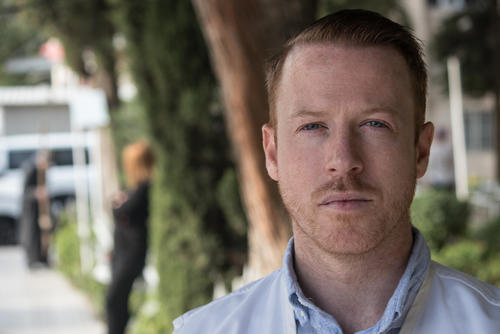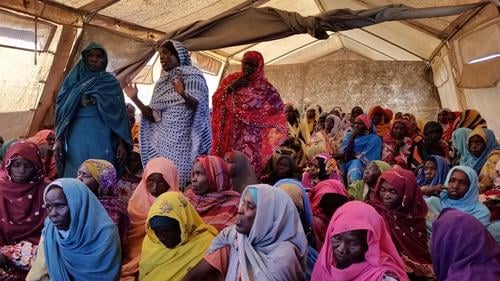Armed conflict devastates lives. Targeted, harassed and trapped within hardship and poverty, people are often forced into flight. In other cases, people live under siege or in constant fear of indiscriminate or even targeted attacks. In addition, people are often left impoverished without sufficient access to basic needs like food and medical care.
The consequences of war can be vast and catastrophic; from death and violence; to long-term lifechanging injuries and post-traumatic stress disorder; destroyed infrastructure and healthcare systems; as well as people being uprooted and forced to leave everything behind.
In conflict settings, depending on the priorities, we may set up operating theatres, clinics, nutrition programmes, epidemic control, medical care for victims of sexual violence, and maternity wards, among other services.
The consequences of war


Trauma injuries surge during armed conflict, calling for increased emergency care. Today, our teams focus on treating both fresh war wounds and long-lasting injuries, through emergency trauma care as well as reconstructive surgery.


During war and conflict regular medical needs climb as healthcare services collapse. Pregnant women, or people with chronic diseases such as diabetes or HIV, are left particularly vulnerable. As commodities become scarce, the price of basic food and domestic items soar, while fear, insecurity, and loss generate psychological distress. We also regularly see an increase in sexual violence during conflict. Sometimes, rape is used to subdue a community.


Conflict often uproots people from their homes. Our teams provide medical care to those who are displaced by conflict and see the direct consequences of violence on the health of individuals and entire communities we serve. Treacherous journeys and precarious conditions at the place of destination jeopardise health and well-being. In such settings, people stuck in limbo without access to proper education, medical care, or even water and sanitation services, are dangerously exposed to various conditions and risks, including mental health issues, violence, and diseases.


Conflict and displacement can be catalysts for epidemics and disease outbreaks, due to a lack of access to water, sanitation and medical care. Living in cramped and unsanitary conditions can be an ideal breeding ground for cholera or measles. Insecurity and collapsed health systems cut people off from receiving preventative healthcare, including vaccinations.


Whether treating children who have been uprooted and witnessed horrific conflicts, or people who have survived torture and sexual violence, our teams strive to address the pressing mental health needs for people affected by war and conflict. In many areas of the world there are very few if any providers of comprehensive mental health services – this often means we have to create our own programmes. In addition to the lack of services, come taboos, stigmas and suspicion surrounding mental health. We therefore have to work with communities to spread awareness regarding the importance of mental health.

“Hospitals must always be prepared; you never know what will happen”

Seeking to assist Syrians, wherever they are in need of help

Dreams of returning home remain distant for displaced in Darfur camp
We don’t take sides
In conflict zones, we do not take sides. It’s crucial for us to talk with all parties in a conflict to obtain access and provide assistance to affected communities. We will speak out about the suffering we observe, as well as any gross violations we may witness while providing assistance to people caught up in war and conflict.
One of the ways we can maintain our independence is to ensure that all our funding for work in conflicts comes from private donors. Globally we accept very few government grants – three per cent of our total funding – and in war zones we do not use funds from governments that have any sort of tie with the conflict.
Despite not supporting any of the warring parties, we are not always present on all sides of a conflict. This may be either because access is not granted to us by one or more of the parties, or due to insecurity, or because the main needs of people are already covered.
Our teams do not always have the capacity to fill every gap, however, we always put people in need first and provide them with the best medical care possible, no matter where they are from, what they believe in, or who they support.













